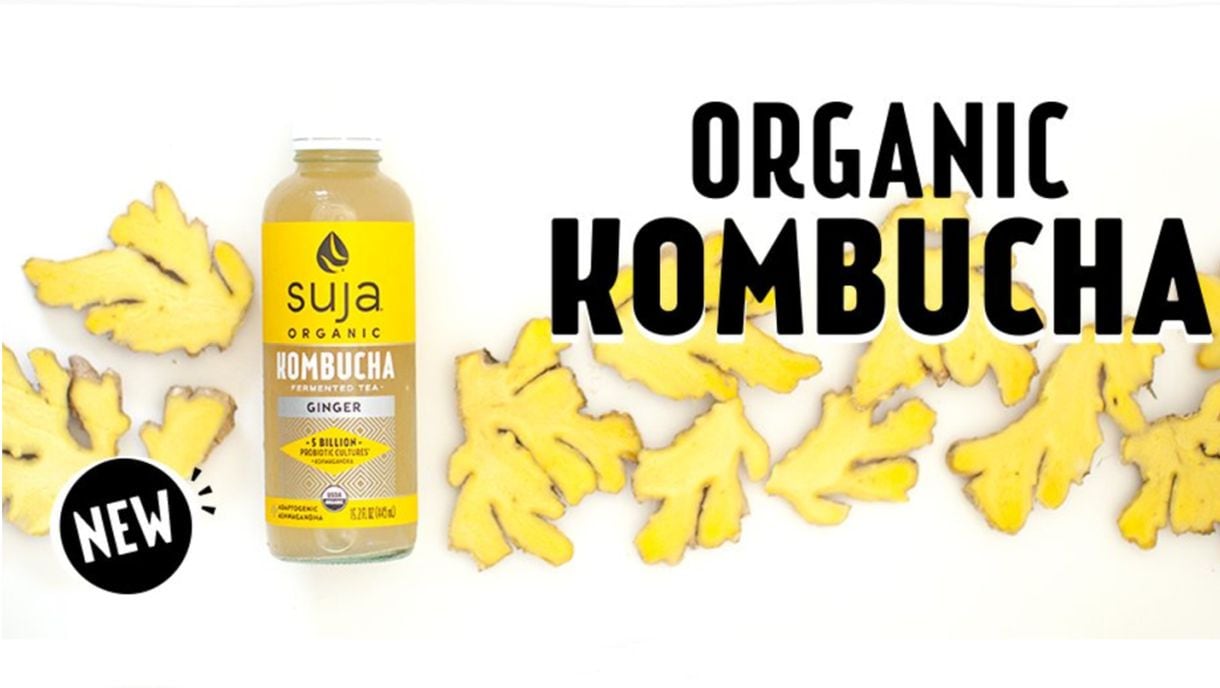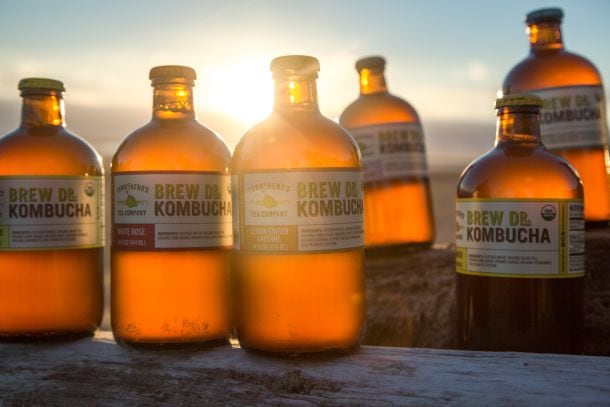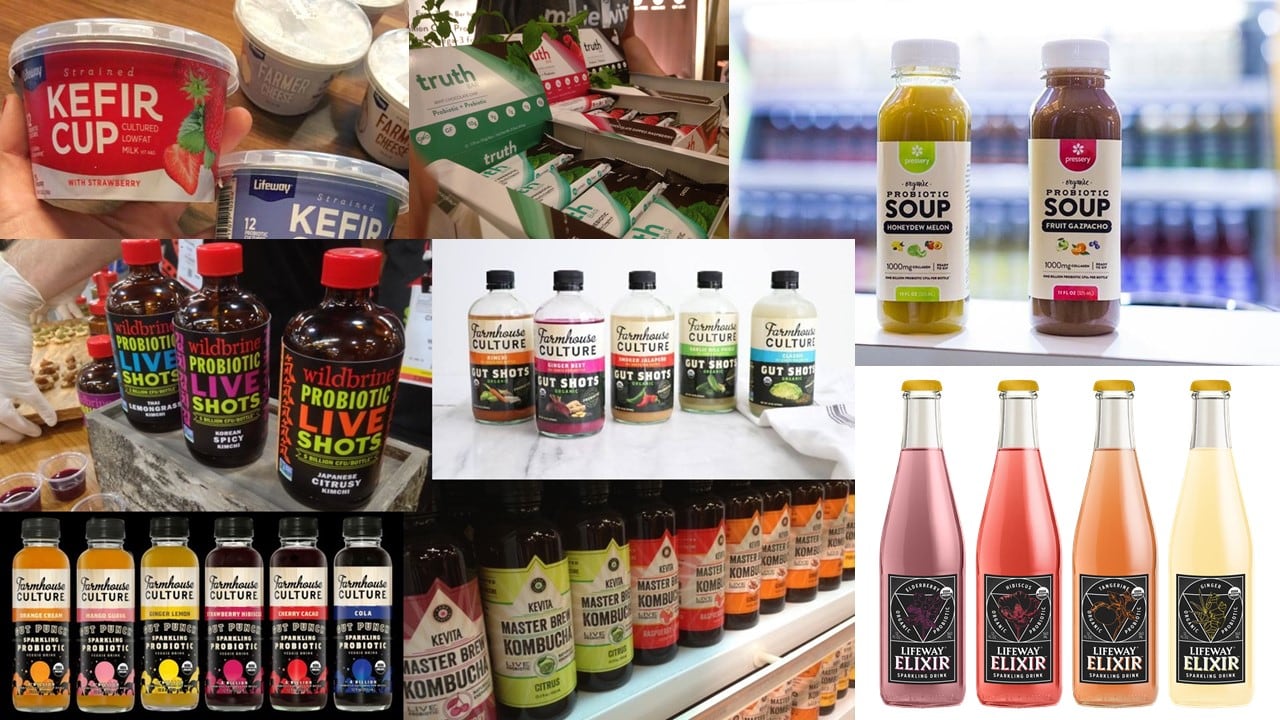In a lawsuit* filed on October 4 in the Superior Court for the State of California in Ventura by law firm Bradley/Grombacher LLP, plaintiff Emma Brenner alleges that beneficial claims that KeVita makes about its Master Brew Kombucha (a fermented tea beverage) are “false and deceptive because all of the… beverages are pasteurized after fermentation… The pasteurization process is never disclosed to consumers... KeVita goes to great lengths to conceal the pasteurization process.”
At some point after 2011, alleges Brenner, KeVita “shifted from its original raw and unpasteurized formulation for a manipulated and pasteurized formulation.” She does not explain what is meant by ‘manipulated’ or provide any details of the pasteurization process she alleges KeVita is now using.
She then goes on to state that the final products do not contain the live probiotics promoted on the label and the website, although she does not provide any test results to support this: “The bacteria killed during the pasteurization process includes, among others, the very probiotics touted on the KeVita website for which consumers chose to purchase and consume KeVita Master Brew Kombucha.”
Product is ‘not a true kombucha beverage’
Later on in the complaint, however, her argument changes course as she appears to acknowledge that the probiotics listed on the ingredients list (Bacillus coagulans LactoSpore MTCC 5856, and Lactobacillus rhamnosus) might be added after the pasteurization step.
However, this would be deceptive, she argues, as consumers have been led to believe that KeVita’s kombucha was “fermented without subsequent pasteurization and contained beneficial organic acids yielded from the fermentation and live probiotics which were derived from that original fermentation and not subsequently added to the product after pasteurization.”
The product, therefore, is “not a true kombucha beverage,” she claimed, adding that KeVita is “falsely marketing, advertising, labeling and selling KeVita as fermented and live and in fact actively concealing the pasteurization.”
Kombucha production methods: KeVita, Suja, Brew Dr Kombucha

PepsiCo (which acquired KeVita in late 2016 and is also named in the lawsuit) has not responded to requests for comment or confirmed how KeVita kombucha products are made although former CEO Bill Moses told this publication in May 2015 that he used a proprietary filtration process to remove residual yeast prior to bottling so that fermentation did not continue in the bottle and the alcohol content was strictly controlled.
Suja, for example, explains on its website that it “includes a ‘kill step’ to stop the fermentation so we can be transparent and accurate in disclosing the sugar and alcohol content to our consumers…”
It adds: “In order to stop fermentation, our kombucha goes through a filtration process to remove the SCOBY [Symbiotic Culture Of Bacteria and Yeast] and as an additional safeguard, we hold our kombucha at low level heat – about half the temperature and half the time that’s used in ultra-high temp processing (UHT)… however it’s important to note that this does not also kill the kombucha’s benefits.”

Matt Thomas, CEO of fellow kombucha maker Brew Dr Kombucha, meanwhile, told FoodNavigator-USA in November 2016: “We’ve developed a proprietary method that enables us to make authentic raw kombucha and still control the abv; but we’re not pasteurizing the product.
"We also don’t need to do that for food safety reasons because the product has a pH of 2.8-pH3 [ie. it’s quite acidic], so harmful bacteria can’t grow, it’s a natural form of food preservation. I can’t talk about our process at this stage because it gives us a strategic advantage.”
Attorney: ‘Despite the 41 pages of pleadings it is not very clear… as to what they are saying’
So what do legal experts make of the case?
Attorneys contacted by FoodNavigator-USA said the complaint was meandering and confused, but did reflect some of the arguments within the trade about more ‘traditional’ and ‘raw’ kombucha products versus ‘mass market’ products that add so-called ‘lab-grown’ probiotics or employ pasteurization or other methods to ensure the alcohol content will remain fixed below the permitted 0.5% abv.
Bob Niemann, partner at Keller and Heckman, told FoodNavigator-USA that, “We have been doing some work with kombucha companies, primarily related to residual alcohol concerns above the 0.5% limit... Despite the 41 pages of pleadings it is not very clear… as to what they are saying.
“While the claimant here did not get raw kombucha [assuming her claim that the products were pasteurized is correct], they nonetheless got a drink with some probiotics, so where is the harm?”
If the live probiotics listed on the label were added after the pasteurization step, given that heat can compromise live micro-organisms, this was a ‘smart’ thing to do, and would still allow for a ‘crafted with live probiotics’ claim, he said.
“Pasteurization was smartly added in the process, but then they had to add back in controlled probiotic strains to accomplish the ‘crafted with probiotics’ claim. The deception [alleged by the plaintiff] appears to be in the lack of admitting that the product is pasteurized and claiming it needs to be kept cold when it does not.”
Not all kombuchas contain probiotics

Kombucha - a fermented tea made by adding a culture of bacteria and yeast to a solution of tea, sugar and sometimes fruit juice - is a product many consumers assume is loaded with probiotics by definition, when products can vary dramatically.
Some brands, such as market leader GT’s, have added Ganeden’s BC30 probiotic strain to their products in order to ensure that they do contain probiotics, as stated on the label. KeVita, similarly, fortifies its Master Brew Kombucha with Bacillus coagulans MTCC 5856 (‘LactoSpore’), which it claims remains active through the expiration date.
However, you can’t make assumptions about what’s in many other kombucha brands unless the manufacturer explains exactly what probiotic strains are in there at the end of shelf life, whether they make it through the digestive tract, and once there, deliver a health benefit, Ganeden’s president Mike Bush told FoodNavigator-USA last year.
Plaintiffs’ attorneys are watching the kombucha category closely
Another legal source told FoodNavigator-USA that plaintiffs’ attorneys are increasingly eyeing up the kombucha category, given the lack of a clear definition of what kombucha is, confusion over ‘raw’ claims, concern over alcohol levels, and confusion over probiotic claims.
He added: “We've seen a bunch of demand letters and complaints against ‘raw’ [for which there is no legal definition] and ‘probiotics’ that use HPP (High Pressure Processing) as an alternative to pasteurization. They are largely without merit, but make the same type of argument.”

Kombucha afficionado and president of non-profit trade association Kombucha Brewers International (KBI), Hannah Crum, did not comment on the lawsuit or KeVita's production process, but said "My belief is that consuming these foods in a living form is more beneficial than in a pasteurized form.
“But there are also companies out there that are describing products as kombucha but they are not brewing or fermenting anything at all, they are using a concentrate, flavors, and then adding probiotics afterwards.”
The KBI is working on developing a standard of identity for kombucha that would define it as a minimum of including tea, sugar and SCOBY (symbiotic culture of bacteria and yeast), said Crum. “If you don’t have those three components you don’t have kombucha."
While filtering out yeast in order to stop the product continuing to ferment in the bottle after it has exited your production facility helps to control the process and the alcohol content, she said, "If you take out the yeast it changes the flavor and you also reduce the nutrition as a lot of the nutrition comes from the yeast."
Complaint is ‘confusing’ and ‘not well designed’
Another attorney told us the complaint was “confusing” and “not well designed” and did not make it clear why the ‘live probiotics’ claim was deceptive just because the probiotics in question (Bacillus coagulans LactoSpore MTCC 5856, Lactobacillus rhamnosus) may be added post-pasteurization.

Indeed, manufacturers of fermented foods that wish to make probiotic claims are often advised to add well-characterized probiotic strains backed by clinical data (such as those listed on KeVita’s labels) after a pasteurization step in order to be sure that they meet the WHO definition of probiotics (‘live microorganisms that, when administered in adequate amounts, confer a health benefit on the host’) should they face legal challenges.
Indeed, some commentators argue that the bigger issue in the fermented foods market is companies making generic ‘packed with probiotics’ claims when they have no idea what bacterial strains are actually in their products, whether they make it through the digestive tract, and once there, deliver a clinically-proven health benefit.
The source added: “The kombucha industry is really interesting right now as there are the old school type brands using traditional methods like you’d make it on your back porch at home, and then companies that might have a pasteurization step in part to control sugar and alcohol levels and add probiotics afterwards. There is this split in the industry about what approach is best.”
*The case is Emma Brenner v. KeVita Inc., et al., in the Superior Court for the State of California, County of Ventura. 56-2017-00502340-CU-FR-VTA
What are probiotics? According to the World Health Organization, probiotics are “live microorganisms that, when administered in adequate amounts, confer a health benefit on the host.”
Do all fermented foods contain probiotics? Not necessarily...
What are fermented foods? According to 'wild fermentation' guru Sandor Ellix Katz, fermentation describes the transformative action of micro-organisms and the enzymes they produce: “Mostly this is a process of anaerobic digestion - where no oxygen is present - eg. yogurt, kefir, sauerkraut, kimchi, beer, wine, and bread. However, vinegar, kombucha, tempeh, molded cheeses, and other fermented foods do require oxygen.”
Examples of fermented foods: Kombucha (fermented tea), sauerkraut (fermented cabbage), natto (fermented soybeans), yogurt, cheese (fermented milk), beer, wine, sourdough bread, miso, soy sauce, and kefir.
According Katz, fermentation can make food...
More digestible: It can break down lactose and gluten to make them easier to digest, make minerals more bioavailable);
More nutritious: It can increase B vitamin content and produce new metabolites and anti-carcinogenic compounds;
More stable: eg. Sauerkraut has a longer shelf-life than fresh red cabbage.
